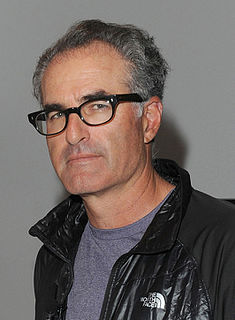A Quote by Karl Lagerfeld
Fashion is a language that creates itself in clothes to interpret reality.
Related Quotes
A sober, devout man will interpret 'God's will' soberly and devoutly. A fanatic, with bloodshot mind, will interpret 'God's will' fanatically. Men of extreme, illogical views will interpret 'God's will' in eccentric fashion. Kindly, charitable, generous men will interpret 'God's will' according to their character.
While the fashion industry may, at least at the top end, be thriving, the notion of fashion itself is becoming more and more meaningless. Any discipline in fashion has long since evaporated; the idea of a single fashionable skirt length, or heel height, is incomprehensible. The definition of the fashionable has become so skimpy that it refers not to the mode of dress of everyday people--the clothes that have sufficiently caught the popular imagination to be worn in a widespread manner--but only to the styles that momentarily excite members of the fashion caravan.
My biggest challenge in making 'The Devil Wears Prada' was simply to maintain a tone of sophistication and reality. It's about the fashion world, or it's set in the fashion world, and that's a world that's easy to mock. It's easy to satirise people trying to lose weight and choosing between fancy clothes.
I see a lot of people dressing very similarly, and I see brands being cool because of their name and because of who wears the brands, but that's always been the case. That's kind of the history of fashion. You know, celebrities wear their clothes and people think these celebrities are cool, and then the clothes become valuable. It gives clothes a commodity factor once a certain individual starts wearing that brand. But do I think there's something wrong? I think what's wrong with the fashion world, particularly men's fashion, is the lack of creativity behind it.
Do the structures of language and the structures of reality (by which I mean what actually happens) move along parallel lines? Does reality essentially remain outside language, separate, obdurate, alien, not susceptible to description? Is an accurate and vital correspondence between what is and our perception of it impossible? Or is it that we are obliged to use language only in order to obscure and distort reality -- to distort what happens -- because we fear it?
There's no linear narrative - the structure is more like a series of variations on a theme (how identity is shaped by language), with the past constantly bleeding into the present, dreams into reality. And the language, while incredibly lyrical in places, also has this underlying dissonance, the sense of it having itself been translated.







































